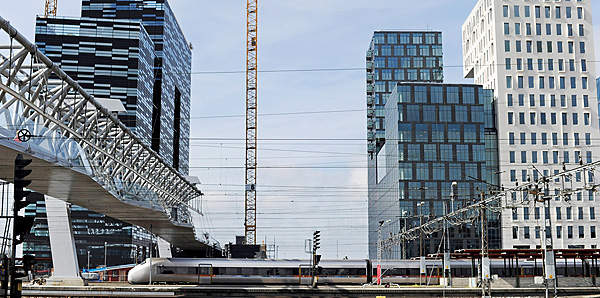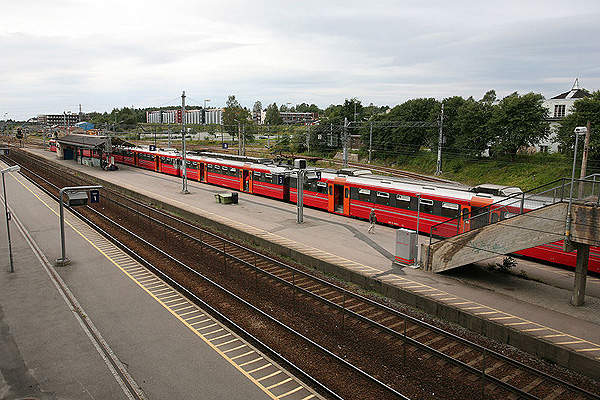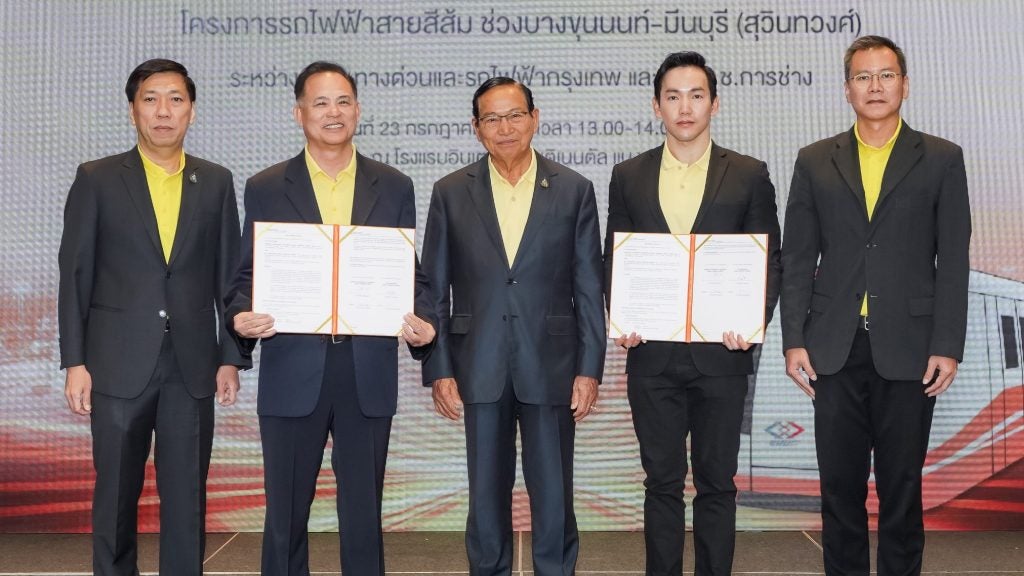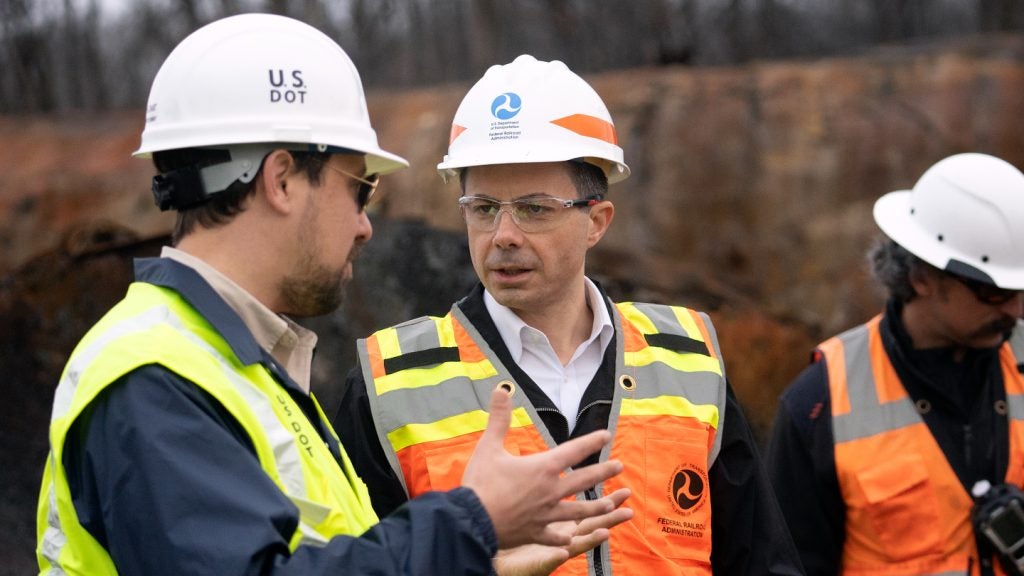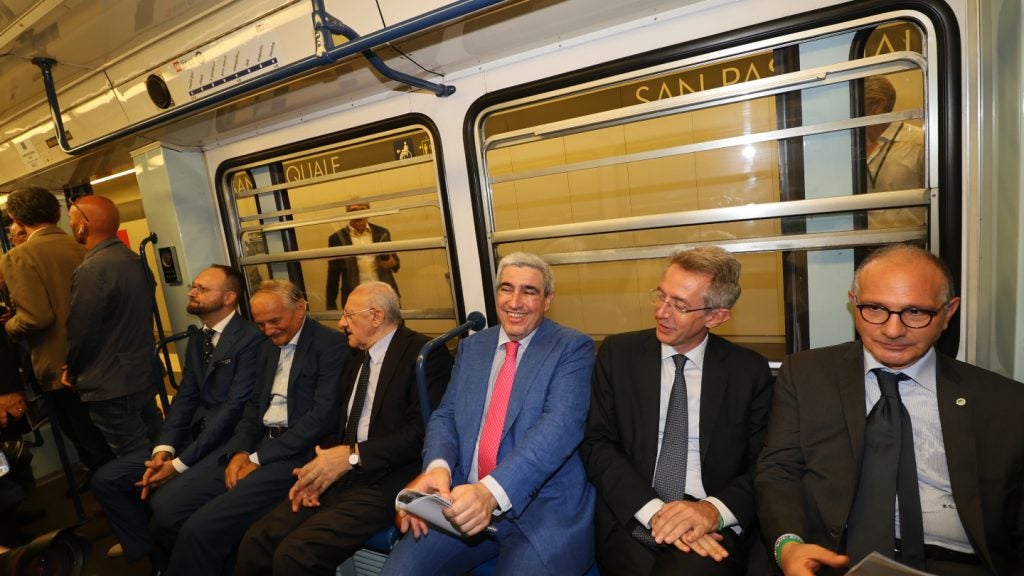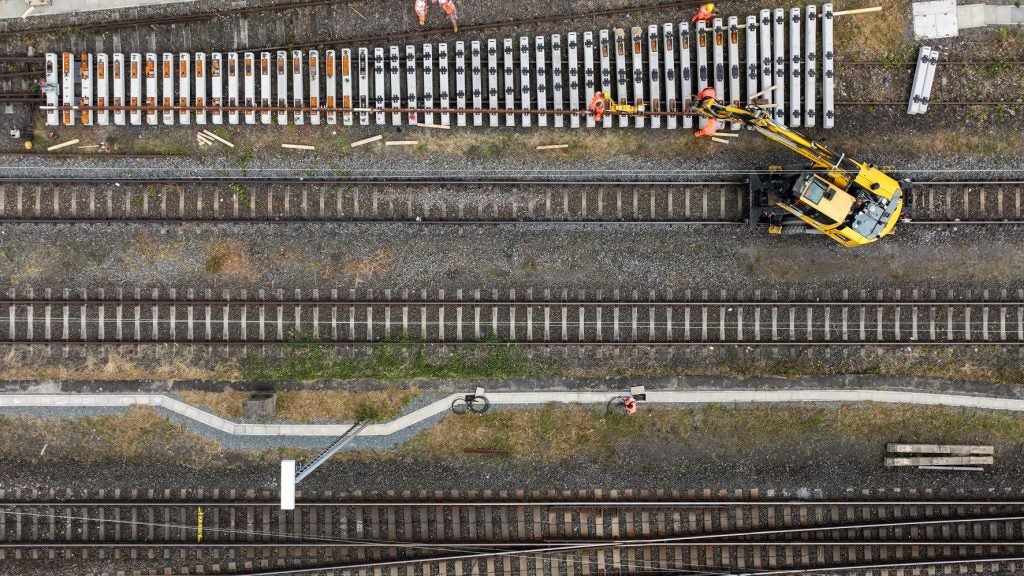Follo Line is a planned 22.5km (14 miles) high-speed railway line between Norway’s capital city Oslo and the suburban town of Ski. The double-track line will run parallel to the Østfold Line.
Construction on the new line began in September 2015 and will be completed by 2021. The Norwegian National Rail Administration (NNRA) will own the line. Norwegian State Railways (NSB) will operate trains at a maximum speed of 250km/h on the new line.
Upon completion in 2021, the line will serve roughly 150,000 passengers a day. The estimated cost of the project is Nkr11bn ($1.9bn).
Oslo-Ski high speed rail line
The Norwegian Parliament decided to build a high-speed rail line between Oslo and Eidsvoll, via the new Oslo Airport, Gardermoen, in 1992.
The Follo Line project was conceived by the Norwegian National Rail Administration (NNRA) as part of the plan to build four tracks along the three main corridors out of Oslo. The three main corridors include the Gardermoen Line, which was completed in 1998, the Asker Line, which was opened in 2005 and extended in 2011, and the Østfold Line, which was opened in 1879 and later upgraded to a double-track line and operated at higher speeds between Ski and Moss.
In order to upgrade the rest of Østfold Line for high-speed rail, the track capacity through Oslo and Ski needs to be increased. The line between Oslo and Ski restrains the track to 12 trains an hour and also hampers the freight trains traffic during the rush hours. The travel time for direct trains to Ski is 22 minutes, while commuter trains take 31 minutes.
Initial plans for the Follo Line were made in 1995. The new line, to be laid between Oslo and Ski, is expected to increase the rush hour rail ridership by 63% and also significantly increase the freight on rail. It will also decrease the travel time on express and regional trains from Ski to Oslo by half, from 22 minutes to 11 minutes.
The line will reduce 5,800 car journeys a day, remove 750 trucks daily from European Route E18 and eliminate 5,500t of CO2 emissions a year. Once the new line is open, all the local trains will be restricted to the Østfold Line and faster trains will be used on the new double-track line.
Follo line high-speed infrastructure
The new double-track line will run 20km through a twin-tube tunnel. The Ski station will be expanded to include new platforms and six tracks, as part of the project.
The NNRA plans to construct new storage tracks before building the public areas. Construction at the Ski station will include laying 50km of cable for reconstruction work, raising and extending all the platforms and improving the transfer areas inside the station. NNRA will also redevelop the Oslo Central station.
The tunnel is being constructed using drill and blast methods by deploying two tunnel boring machines (TBMs). It includes two separate tubes with cross-connections for every 500m. It is estimated that approximately 4.5 million cubic metres of rock and 7.2 million cubic metres of muck are being excavated during the tunnel’s earth works.
The impact study and public hearing process by the respective municipalities was completed in 2012. The preparatory work began in 2013 and the main construction work began in 2015. The EPC drill and blast contract is planned to be finished by early-2018.
Contractors involved
Società Italiana per Condotte d’Acqua (Condotte) was awarded the Nkr1.2bn ($158m) engineering, procurement and construction (EPC) contract to drill and blast through Ekeberg Hill near Oslo Central Station in February 2015.
Condotte was also awarded an EPC contract for the construction of new railway lines near Oslo Central Station as part of Follo Line project, in December 2015.An Nkr8.7bn ($1.08bn) contract was awarded to the ACCIONA and Ghella joint venture in March 2015 to construct the twin-tunnel. Obrascón Huarte Lain, a Spanish construction group, won the EPC Ski contract for Nkr2.3bn ($280m) in July 2015.
In September 2011 Atkins, in partnership with Norwegian engineering consultancy Aas Jakobsen, was awarded a contract to design new signalling systems for the railway line.
Thales was awarded Nkr250m ($28.7m) contract for the design, installation and testing of a new signal system at Ski station, in December 2015.
Pöyry was contracted to perform tunnel engineering for the railway line, in January 2016.


